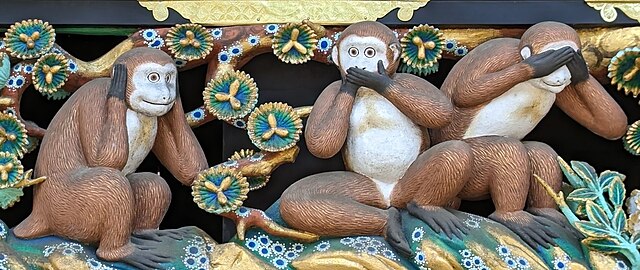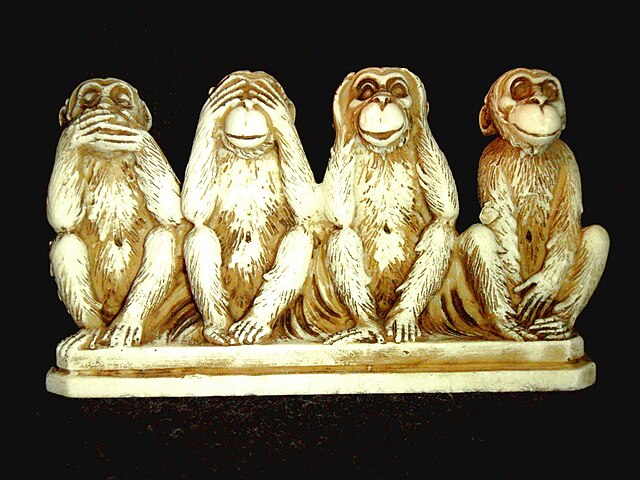The three wise monkeys are a Japanese pictorial maxim, embodying the proverbial principle "see no evil, hear no evil, speak no evil". The three monkeys areMizaru (見ざる), "does not see", covering his eyes
Kikazaru (聞かざる), "does not hear", covering his ears
Iwazaru (言わざる), "does not speak", covering his mouth.
The three wise monkeys at the Tōshō-gū shrine in Nikkō, Japan
Tōshō-gū shrine stable
Kōshin scroll with the three monkeys
Sculpture of four monkeys, the fourth monkey is covering its genitals
A proverb or an adage is a simple, traditional saying that expresses a perceived truth based on common sense or experience. Proverbs are often metaphorical and are an example of formulaic language. A proverbial phrase or a proverbial expression is a type of a conventional saying similar to proverbs and transmitted by oral tradition. The difference is that a proverb is a fixed expression, while a proverbial phrase permits alterations to fit the grammar of the context. Collectively, they form a genre of folklore.
From the French proverbial phrase "Je me mêle des oies ferrées" – "I concern myself/meddle with shoeing geese." From a misericord at the Abbey of Saint Martin aux Bois (Oise), France
"Pearls before Swine", Latin proverb on platter at the Louvre
"Who will bell the cat?", comes from the end of a story.
A rolling stone gathers no moss.








